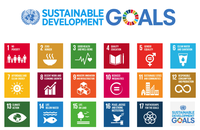Presentation
THE THEME AND OBJECTIVES OF THE CONFERENCE!

CANADA 2021: TRADITIONS AND SOCIAL INNOVATION
A new decade of 2020s has just started and we are already facing important challenges as an international community. These challenges, summarized in the 2030 UNESCO Agenda for sustainable, inclusive and universal development, range from the eradication of poverty to gender equality, from climate action to quality education, encompassing sustainable cities and communities, as well as the promotion of peace, justice and strong institutions.
Seventeen are the goals to be pursued by 2030 in order to transform our world and achieve a better and more sustainable future for all. In this context of crucial and international challenges, Canada can be a fruitful setting for interdisciplinary investigations aimed at exploring issues and common strategies, suggesting answers and designing actions. Recent and new studies on superdiversity in Canada have pointed out to the fact that intersecting diversities within local communities in terms of social, ethnic and economic differences are connected to the blooming of new lifestyles and ways of sharing and designing public spaces. Such deep and rich diversities also play a crucial role in the development of new cultural, linguistic, literary and artistic practices in contemporary Canada.

Since 1970s, Canada, once a British and a French colony, has faced its post-colonial era by undertaking visionary and innovative actions. So much so that it was the first country in the world to institutionalize multiculturalism with a unique “Charter of Rights and Freedoms” back in 1982, enhancing Canada's multicultural heritage. However, in contemporary Canada, such an approach, once considered inspirational and innovative from a Eurocentric perspective, is now being questioned by the Indigenous People who are claiming a different historical memory relying on their long-denied cultural traditions. Ironically, as Sheila-Watt Cloutier highlights in her book The Right to Be Cold (2015), re-discovering such neglected traditions can lead to the identification of useful solutions to face upcoming challenges in contemporary Canada and elsewhere. For instance, a new sense of community, a different relationship with the land, some alternative economic perspectives, a renewed connection between older and newer generations can all work as effective strategies to rethink the idea of nation.

The conference aims at offering scholars working in a wide range of disciplines a fruitful occasion for investigating recent changes and adaptations in the Canadian context, from literary, linguistic, cultural, sociological, technological, legal, environmental, economic and political perspectives.